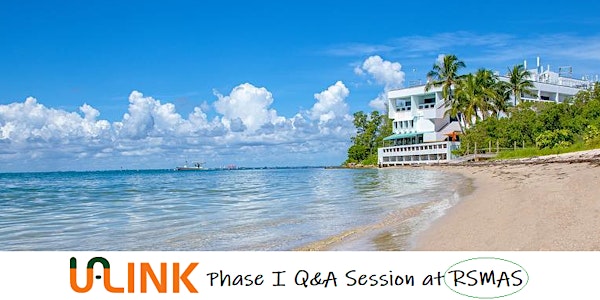
U-LINK Phase I Q&A Session at RSMAS
Date and time
Location
Rosenstiel School of Marine and Atmospheric Science
4600 Rickenbacker Causeway SLab, 103 - Seminar Room Miami, FL 33149Description
Please join the Office of the Vice Provost for Research on Wednesday, June 19th for a Phase I Q&A session from 2-3 pm about the UM Laboratory for INtegrative Knowledge, or U-LINK, the university-wide platform for incubating ideas, fostering interdisciplinary collaboration, and providing funding to facilitate new approaches to difficult problems.
Members of the Office of the Vice Provost for Research will be on hand to share information on U-LINK, which is gearing up to award its third round of grants to interdisciplinary groups that propose novel, solution-oriented research projects that address a multifaceted problem facing society.
The hour-long Q&A will be followed by a social mixer from 3 - 4 p.m.
Organized by
Interdisciplinary Inquiry, one of the transformative initiatives of the University of Miami’s Roadmap to Our New Century, will support teams of scholars from multiple disciplines in collaborative, problem-based inquiry to address the complex challenges of society through two pillars: geography and problems. U-LINK (University of Miami Laboratory for Integrative Knowledge) addresses the “problems” pillar.
The world’s most compelling and difficult problems are complex. Addressing the challenges of climate change, for example, requires thinking about weather patterns, relationship of disease and environment/diet, coastal architecture, energy use, city planning, human communication, the role of truth in media, international relations, big data and many other fields.
A key purpose of research universities like the University of Miami is to serve as centers of inquiry in which scholars from multiple disciplines can work together to pursue innovation, in areas where the world needs them most. The diversity inherent in UM’s 11 schools and colleges should provide unique advantages in exploring and addressing these types of problems.